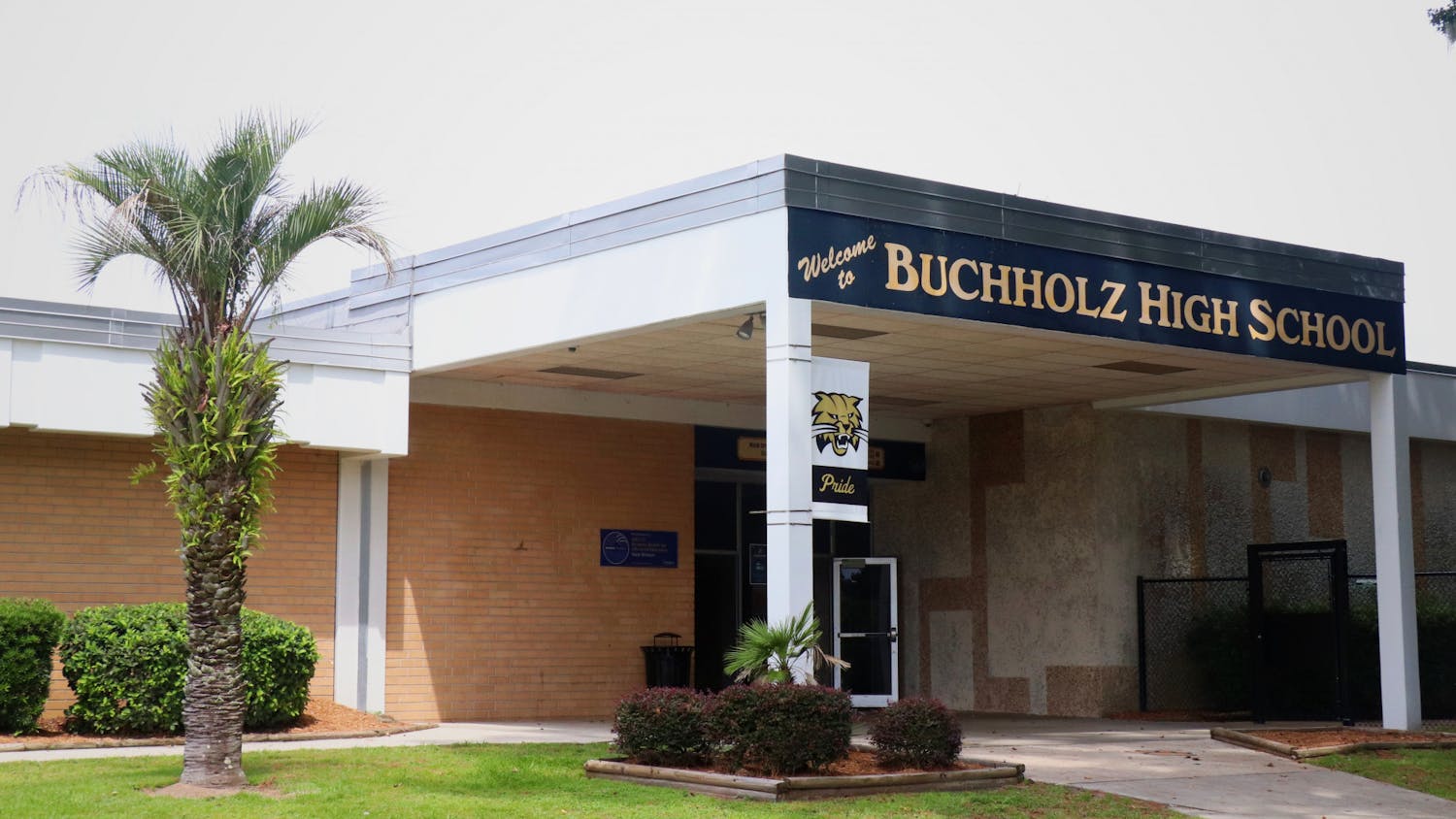Amy Mahler is no stranger to to natural disasters.
Two years after Hurricane Katrina devastated New Orleans, she described her experience while visiting.
“The chaos was still there,” the 20-year-old UF marine science junior said. “People’s houses had big red X’s on them. A lot of people were still being located in shelters.”
However, Mahler said she would be “extremely unprepared” if a hurricane were to hit Gainesville.
Luckily for Mahler, the 2015 hurricane season — which begins Monday and lasts through Nov. 30 — is expected to be a relatively calm one, said UF experts.
Y. Peter Sheng, a UF civil and coastal engineering professor and an expert in coastal hazard and coastal ecosystem restoration, wrote in an email that there is estimated to be only seven named storms, three of which will be hurricanes and one of which will be a major storm.
Sheng said the leading factors causing the below-average season is a continued El Niño, a stream of air around South America that results in cooling of below-average sea surface temperatures in the Atlantic Ocean.
“(The weak El Niño) creates an increased wind shear over the Caribbean, thus preventing storm formation,” Sheng said.
The last major hurricane to make landfall in Florida was Hurricane Wilma in 2005.
Mike Spranger, a UF professor of family, youth and community sciences and an expert in natural disasters preparation, wrote in an email that since Floridians have not been impacted by a major hurricane in many years, they may become complacent when it comes time for hurricane season.
Spranger displayed a classic example of a lack of preparation by mentioning Category 5 Hurricane Andrew that hit South Florida in 1992. The hurricane season of 1992 was calm until Hurricane Andrew formed in the warm waters of the Atlantic Ocean.
Sheng said that southeast Florida has the highest risk of hurricane landfall. But the chance of Gainesville being directly hit is low compared to other locations in Florida because Gainesville is not on the coast.
Spranger advised to have at least three days’ worth of nonperishable food and a five-day supply of water. People should also have some readily available cash, since ATM machines may not be working.
“If you do some planning before the event,” Spranger said, “there is much better chance to reduce property damage as well as injury or loss of life if we have a major hurricane hit Florida.”
[A version of this story ran on page 3 on 5/26/15]
Dr. Corene Matyas, a professor at UF who specializes in severe weather, advises people to have copies of important documents, extra medications, plenty of drinking water and nonperishable foods. Flashlights, batteries and a first-aid kit are also good ideas. A National Oceanic and Atmospheric Administration (NOAA) weather radio can be set to alert you of any watches or warnings and also provide weather forecasts.
Hurricane shelters in Gainesville:
Talbot Elementary School - 5701 NW 43rd St.
Williams Elementary School - 1245 SE Seventh Ave.
Eastside High School - 1201 SE 45th Terrace.
Kanapaha Middle School - 5005 SW 75th St.
Meadowbrook Elementary School - 11525 NW 39th Ave.
Gainesville Senior Center - 5701 NW 34th St.
When going to the shelter, bring:
Sufficient nonperishable food for 72 hours
medicine and baby needs
games for children
bedding and a change of clothes for the entire family
flashlight with extra batteries.
If you are unable to evacuate during a hurricane, go to your wind-safe room. If you do not have one, follow these guidelines:
Stay indoors during the hurricane and away from windows and glass doors.
Close all interior doors — secure and brace external doors.
Keep curtains and blinds closed. Do not be fooled if there is a lull; it could be the eye of the storm — winds will pick up again.
Take refuge in a small interior room, closet or hallway on the lowest level.
Lie on the floor under a table or another sturdy object.
Avoid elevators.
What to do with your pet during a hurricane:
Keep it inside with you unless you must evacuate your home.
If you have to evacuate, there are shelters that can care for your pet until the storm passes.
Have pictures of your pets in case they get lost during a storm.
Keep your pets up-to-date on their vaccinations. Many shelters require proof of vaccination.
Have a pet emergency kit with identification, immunization records, medication,
Have a pet emergency kit with identification, immunization records, medication, supply of food and water, a muzzle, collar and leash.





